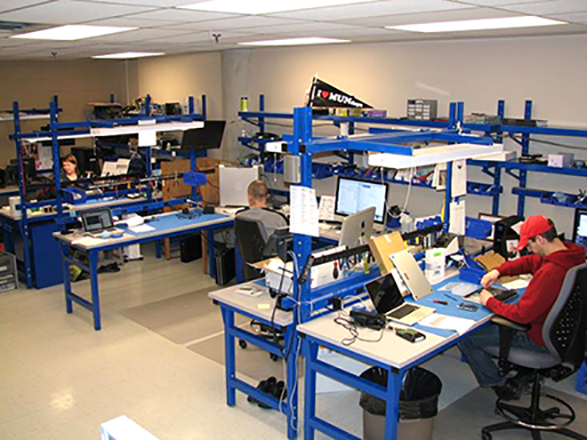You are here
How digital can you go?
By Jean-Claude Elias - Aug 04,2016 - Last updated at Aug 04,2016
The number of online tasks and activities is growing, it’s understood, but how far can it all go? Of all the actions and operations we used to do manually, how many can be transformed into digital operations? What are the consequences?
Banking, shopping, social networking, e-mailing, gaming, reading, and hundreds of other activities are already in the digital domain. Even “traditional” software that you used to have on your computer is being taken one degree up in virtualisation and is being accessed in the Cloud from your computer, without being actually physically installed (i.e. saved) on its hard disk.
Bitdefender, a company based in Romania and one of the leading providers of antivirus software is changing its policy and wants its user to use its Cloud-based software, not the one you used to install on your machine.
France also is going one step up in virtualisation. Voting will be done electronically via the Internet and the correction of the “baccalauréat”, the equivalent in France of the Jordanian high school Tawjihi exam, will also be done online. In countless schools, including the French school in Amman, students are already doing part of their homework online, digitally, in a completely paperless manner.
Jordan has its share of online-based electronic services, not only in banking of course, but in a large number of public ones, mainly those pertaining to Amman municipality, such as checking (and paying…) traffic fines, companies’ yearly licences renewals, real estate taxes and others.
Whereas all the above undeniably save time, money, transportation, paper, fuel and certainly contribute to reducing environment pollution in a general manner, at the same time they all reduce direct human contact, a direct effect the consequences of which cannot be underestimated, and for the time being are not fully studied, evaluated or understood.
The world is not only becoming digital and paperless, but also “human contact-less”.
Providers of technical service in the field of Information Technology (IT) have also found a way to help users and solve problems not by physically dispatching technicians on-site, but by remotely accessing the machines that require service, vie the Internet, of course. German company TeamViewer has taken the lead in this field. Its eponymous product is a software application that your install and that lets the computer technicians wherever they may be in the world, to access your computer remotely, work on it as if they were sitting with you in the same room and solve most of the technical issues you may encounter.
Again, the advantages of such extensive digitisation and virtualisation are many, are obvious and priceless; but what about the disadvantages?
It belongs to psychologists, scholars and college researchers to study and analyse the consequences of not doing things in person, of not seeing the other party in the flesh when working, of not having a humane, basic but so important handshake, of not having an eye contact with the person you are dealing with.
Whatever their findings and eventually their recommendations, it is safe to bet that nothing will go backwards and that we will keep seeing more and more being done digitally, online, virtually, without any human contact. There simply seems to be no limits to what can be done via the Internet, and all the already available electronic means and the ones to come.
Related Articles
In the announcement made last Monday by the Minister of State for Media Affairs Amjad Adaileh, computer shops and retailers were among the b
In movies, in the news and in real life, stories about computer hacking abound. Should you worry?
What good is a very fast computer if most of what you do is to work online, and your Internet connection is not up to your computer’s specs?

















